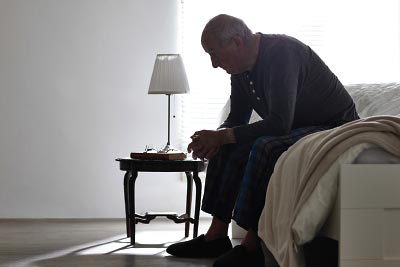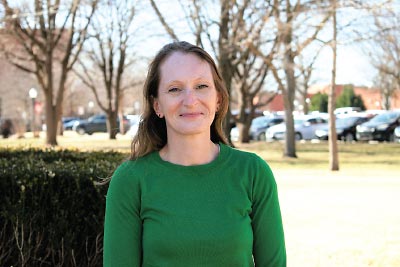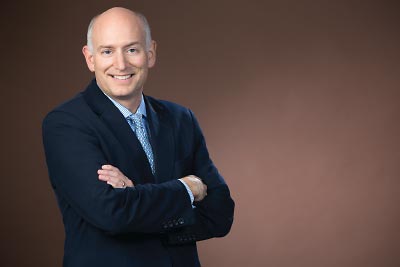Ageism Takes Toll on Physical, Mental Health
Abstract
The negative messages older people receive about aging from the world at large have a cumulative impact on the risk of depression and chronic disease.

Walk through the greeting card section of any drug store and you will probably see birthday cards that poke fun at aging. Watch a sitcom and sooner or later you will see an older character whose forgetfulness is the butt of a joke. Perhaps some of your older patients gloss over illness, injury, or changes in mood as “just part of aging” or make self-deprecating comments about “senior moments” to describe things like misplacing their keys.
Such narratives may seem like just a bit of humor, but a study in JAMA Network Open suggests that they are harmful to older people’s health and well-being. The study found that experiencing everyday ageism—routine types of age-based discrimination, prejudice, and stereotyping that older adults encounter in their day-to-day lives—is linked to an increased risk of poor physical health, chronic conditions, and symptoms of depression in people aged 50 and older, especially when people in this population internalize messages about aging and failing health.
“The negative narratives around health are part of the problem, but if we believe something will happen, and our actions and environment reflect our beliefs, it’s more likely to happen,” the study’s lead author, Julie Ober Allen, Ph.D., M.P.H., told Psychiatric News. Allen is an assistant professor of health promotion in the Department of Health and Exercise Science at the University of Oklahoma. “We need to send the message that ageism isn’t a joke and that it has serious consequences for older adults.”

Experiencing everyday ageism produces a reaction akin to the fight-or-flight response, says Julie Ober Allen, Ph.D., M.P.H
Allen and colleagues examined data from 2,035 adults aged 50 to 80 years who participated in the December 2019 National Poll on Healthy Aging. The researchers used the Everyday Ageism Scale to measure how often participants were exposed to three dimensions of ageism: environmental and social cues that reflect ageist prejudices and stereotypes, such as hearing jokes about older people or seeing or hearing things that suggest that older adults are unattractive; ageism in interpersonal interactions, such as others assuming the participants have difficulty using cell phones and computers or assuming the participants cannot hear or see well; and internalized ageism, such as believing that health problems, loneliness, and sadness or worry are part of getting older. Participants also rated their physical and mental health, reported their diagnosed chronic health conditions, and completed the Patient Health Questionnaire-2.
Overall, 93.4% of participants reported regularly experiencing at least one form of everyday ageism. Of those, 81.2% had internalized ageism, 65.2% were exposed to ageist messages, and 44.9% experienced ageism in interpersonal interactions.
The mean score on the Everyday Ageism Scale was 11.23 for participants aged 65 to 80 years and 9.55 for those 50 to 64 years. For each additional point on the Everyday Ageism Scale, the odds of participants reporting fair or poor physical health, fair or poor mental health, or depressive symptoms increased 1.13-fold, 1.18-fold, and 1.20-fold, respectively. The more experiences of everyday ageism participants had, the more chronic health conditions the participants were likely to report. Participants who believed that health problems were part of getting older had 1.93 times the odds of reporting fair or poor physical health compared with those who did not hold that belief. Participants who believed that feeling depressed, sad, or worried is part of getting older had 2.39 times the odds of reporting fair or poor mental health and 3.16 times the odds of reporting depressive symptoms compared with those who did not hold that belief.
Allen said that repeatedly experiencing ageism may condition older people to expect ageist treatment, which can lead to harmful bouts of stress as they go about their daily lives.

Psychiatrists should look within to determine whether they have an implicit bias about aging, says Brent Forester, M.D., M.Sc.
“Anticipating what other people might be thinking about them and wondering why someone is treating them a certain way acts like a fight-or-flight response. Cortisol goes up, which can damage biological systems and lead to accelerated aging, more health conditions, and premature mortality,” Allen explained.
Brent Forester, M.D., M.Sc., a member of APA’s Council on Geriatric Psychiatry and the immediate past president of the American Association for Geriatric Psychiatry, said that the findings support previous research about ageism and mental health in older people. He is chief of the Division of Geriatric Psychiatry at McLean Hospital in Belmont, Mass., and an associate professor of psychiatry at Harvard Medical School.
“While the ageist belief that physical, functional, and cognitive decline are all normal features of aging is completely not true, [holding such a belief] is a known risk for developing depression and other psychiatric illnesses,” said Forester.
Indeed, all 13 studies in a literature review published in Gerontology & Geriatric Medicine in April found that people aged 60 years and older who experienced ageism were more likely to have poorer mental health than those who did not perceive or experience ageism. Seven of the studies in the review found that experiences or perceptions of ageism or age discrimination were associated specifically with an increase in depressive symptoms, stress, and anxiety.
Age Really Is Just A Number
Forester said that one way to combat ageist stereotypes and their potential harm is to pull back from using the number of years people have lived as a barometer of aging and instead focus on wellness.
“Putting a number on someone and calling that person ‘older’ doesn’t really describe the person’s quality of life and functioning. It all depends on the person and not age itself. We need to raise awareness of healthy aging and provide education on how patients can [achieve it],” he said. Allen agreed, noting the diversity of older people.
“To assume that everyone between 50 and 100 shares the same characteristics, like they’re all retired, they all have hearing problems, they’re all lonely, and so on is absurd. We’re talking about a tremendously large population,” she said.
Forester said that psychiatrists should be attuned to their own feelings about aging.
“What role models did you learn from? Did you see a lot of older people with impaired function or were they functioning well?” Forester said. “Be aware of your own ageist beliefs because you can’t help your patients unless you address your own implicit bias.”
Forester said that psychiatrists in all types of practice will see increasing numbers of older patients as the population ages.
“Be open to it, because there will never be enough geriatric psychiatrists to treat all of these patients,” Forester said. “There is so much that older patients can do despite advancing age, but you won’t know [what they are capable of] until you actually work with them.”
The study in JAMA Network Open was supported by the National Institute on Aging, the Department of Veterans Affairs, and the University of Oklahoma. The authors of the study in Gerontology & Geriatric Medicine reported no outside funding for their work. ■



